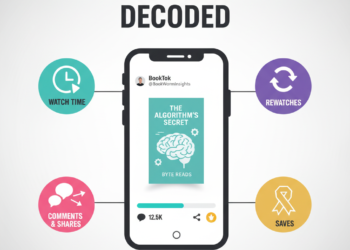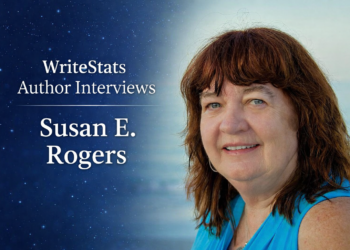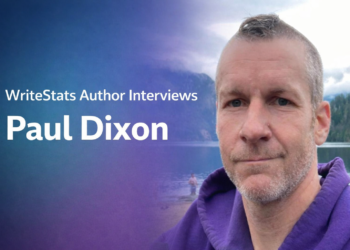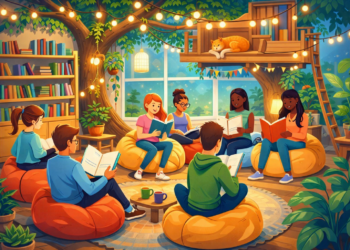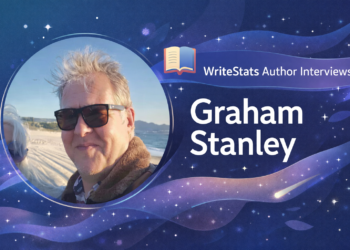Have you ever picked up a book “just for a few minutes,” only to find yourself still reading hours later, heart racing, dinner forgotten, the real world fading around you? If so, you’ve experienced what neuroscientists call narrative transport, the immersive, all-consuming pull that explains why some books are addictive and others barely hold our attention.
From analyzing how readers use books for self-growth in “Personal Development Reading Habits: How to Curate Your Own Bibliotherapy Library for Life-Changing Growth” to studying digital reading trends in “How BookTok Transformed Seasonal Reading Culture,” one truth keeps emerging: reading is as much a biological as an emotional experience.
So, let’s explore the science of why some books hook us completely, while others barely make it past chapter one.
The Brain on Books: What Happens When You Get “Lost in a Story”
When you read an engaging book, your brain doesn’t just process words; it simulates the experiences they evoke. According to a 2019 study in Cognitive Neuroscience, when we read about an action, our motor cortex activates as if we were performing that action ourselves. That’s why reading about a chase scene can make your heart race, or why a well-written love story can feel physically warm.
This activation isn’t metaphorical; it’s measurable. fMRI scans reveal that the brains of engaged readers exhibit increased connectivity between regions responsible for language, emotion, and memory.
Put simply: the more your brain “lights up,” the more addictive the book becomes.
Dopamine, Anticipation, and Why Some Books Are Addictive
Dopamine — often called the “feel-good chemical” — is the key player in explaining why some books are addictive. However, it’s not just about the reward alone; it’s about the anticipation.
Each time a story leaves you hanging at the end of a chapter, your brain experiences a spike in dopamine, the same neurotransmitter associated with cliffhangers, plot twists, and suspense. This biochemical pattern is what neuroscientists refer to as a prediction-reward cycle.
The formula looks something like this:
Curiosity → Uncertainty → Anticipation → Reward → Repeat.
This cycle keeps readers turning pages late into the night, chasing a resolution like a mystery that must be solved.
Interestingly, research from Emory University found that the “neurological echo” of reading can last for days, meaning our brains remain in a heightened state of engagement even after we’ve closed the book.
Emotional Resonance: Why Characters Matter More Than Plot
You might think plot drives addiction, but neuroscience says otherwise. Studies published in Social Cognitive and Affective Neuroscience show that when readers emotionally connect with a character, their brains release oxytocin, a hormone associated with empathy and bonding.
This emotional synchronization explains why some books feel unforgettable. When a character mirrors your own struggles or desires, your brain reacts as if you’ve formed a genuine relationship. The stronger that bond, the stronger the “need” to keep reading.
That’s also why rereading a favorite book feels like reconnecting with an old friend; your brain has stored emotional memories tied to those characters.
The Role of Pacing, Style, and Cognitive Flow
Another major factor in why some books are addictive lies in the concept of flow, a psychological state where time disappears, focus sharpens, and effort feels effortless.
According to Frontiers in Psychology, readers experience flow when:
- The challenge level of the text matches their reading skill.
- The narrative rhythm is consistent but not predictable.
- The prose style triggers emotional engagement without cognitive overload.
That’s why authors like Colleen Hoover or Brandon Sanderson hook massive audiences: they’ve mastered the neurological balance between familiarity and surprise.
Not All Books Are Addictive, And That’s Okay
If you’ve ever abandoned a bestseller halfway through, don’t feel guilty. Not every book is designed to activate the same neural rewards.
In fact, reading for relaxation or learning triggers different brain pathways than reading for emotional immersion. Academic reading, for instance, activates the dorsolateral prefrontal cortex, associated with logic and reasoning, while escapist fiction engages the limbic system, our emotional brain.
The takeaway? Not every reading experience needs to be addictive to be valuable.
Sometimes, slow reading — like the kind we explored in our bibliotherapy blog — helps readers process ideas more deeply, improving mental health and empathy rather than adrenaline.
Why Some Books Are Addictive in the Digital Era
Social media has transformed not only how we read but also why we read. Platforms like BookTok, as discussed in our analysis of seasonal reading culture, amplify specific genres that trigger emotional and neurological highs, think dark romance, thrillers, or fantasy sagas with fast emotional payoffs.
According to a 2024 Statista report, 62% of Gen Z readers choose their next book based on emotional buzzwords (such as “heartbreaking,” “mind-blowing,“ or “plot twist”), rather than genre. That emotional language directly mirrors the dopamine-driven reading cycle.
BookTok has essentially gamified emotional reading, creating viral page-turners that satisfy our brain’s craving for anticipation and reward.
How to Choose Books That Engage Your Brain
If you want to tap into the science behind why some books are addictive, look for these characteristics:
- Strong emotional core: Characters with depth and flaws you can empathize with.
- Structured tension: Chapters that end on questions, not answers.
- Multi-sensory description: Language that makes you feel the scene, not just see it.
- Pacing variation: Alternating moments of calm and intensity to maintain dopamine rhythm.
- Relatable stakes: Plots where the emotional risk feels personal, not abstract.
In the End, It’s Chemistry and Craft
So, why are some books addictive? Because they do more than tell a story, they hijack your neural pathways. The best authors build rhythm, empathy, and anticipation into every sentence, guiding your brain’s chemistry as much as your imagination.
Reading, in that sense, is both art and biology, a creative collaboration between storyteller and synapse.
The next time you lose yourself in a book, remember: it’s not just a good story. It’s neuroscience at work.




